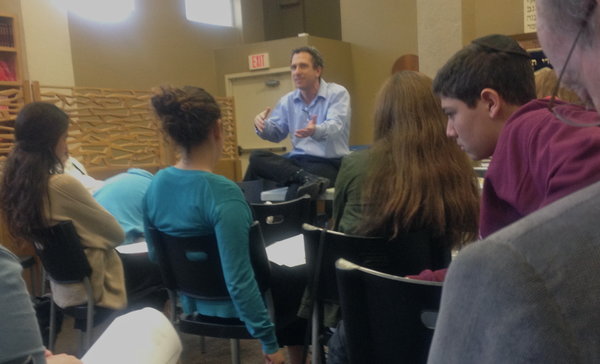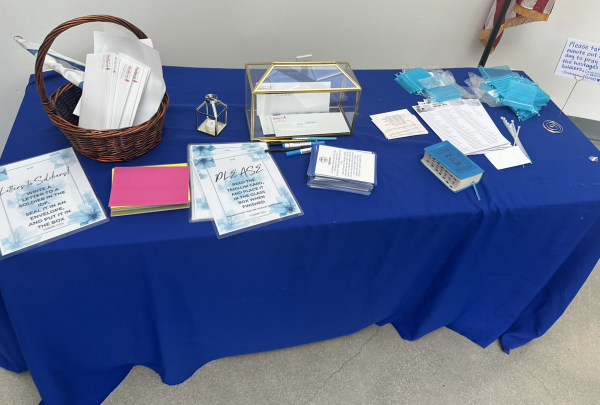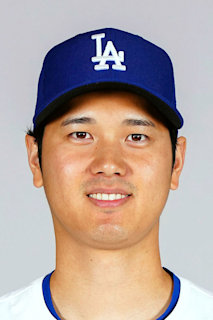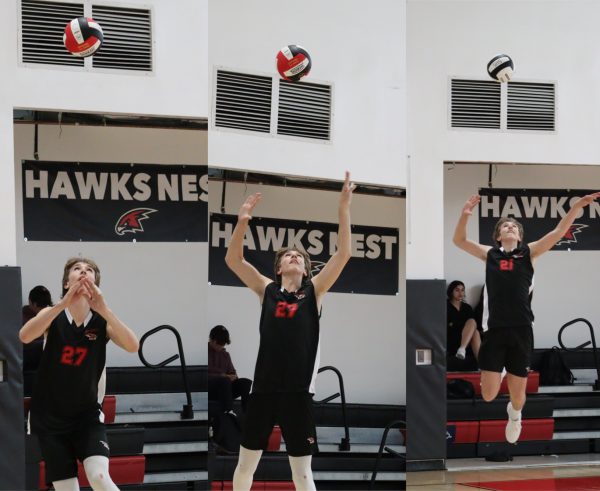Ethics on the table at JSPA gathering
November 21, 2013
By Anna Gordon, Staff Writer
Any journalist will tell you that exposing the wrongdoings of others is part of the job. Yet the Torah specifically commands us not to speak lashon hara (evil speech) about another person.
Rabbi Yosef Kanefsky of Bnei David Judea believes that usual halacha (Jewish law) may not apply to journalism at all.
This year at the first ever Jewish Scholastic Press Association (JSPA) convention, Rabbi Kanefsky claimed that journalism is incompatible with standard Jewish law. Roughly twenty students and adults from across the country attended the workshop, which took place on October 25.
“I’m wondering whether journalism and the general frame of halacha, meaning the framework of interpersonal relations, are compatible at all”, Rabbi Kanefsky told the audience.
In Torah terms, journalism is relatively new because technology to distribute articles has rapidly changed in recent centuries. Many major Rabbis from older generations never addressed the topic because it was irrelevant.
In order to see if journalism really is compatible with halacha, Rabbi Kanefsky researched an attempt to create halachic rules for journalists. Ultimately, he found that these rules could realistically be followed. He compared journalism to hockey.
“Hockey is realm in which the usual laws of assault and battery don’t exist”, he explained. According to Rabbi Kanefsky, the same way hockey players are not subject to regular laws of assault and battery journalists might not be obligated to follow the classic halakha of interpersonal relations.
In order to see if this was true, Rabbi Kanefsky studied Dr. Steven Oppenheimer’s attempt to create a halakhic guide for journalists. In this guide Dr. Oppenheimer started out by quoting a halacha that says you should never increase controversy. Jennifer Medina, a national correspondent for The New York Times, said that’s exactly what her editors want her to do.
“Without tension and controversy there is no front page story. According to these rules, my job would be impossible”, she told the audience.
Without modern halachic guidance, observant Jewish journalists are left with the laws of rebuke. However, according to these laws, a person must try their best to rebuke somebody privately before publicizing somebody’s wrongs.
Dr. Oppenheimer assumed that journalists are halachicly considered rebukers. When there is a controversy, Dr. Oppenheimer noted, halacha says that journalists are first obligated to attempt solving the issue at hand privately. Only after they have tried and failed at doing so can they proceed with publicizing the problem through a story.
Jennifer Medina, a national correspondent for The New York Times, argued that always rebuking somebody privately before going public with a story is not a viable option for most journalists. Also, Rabbi Kanefsky added, in cases like sexual abuse, going public with an issue that could have been resolved privately allows people who have been similarly wronged to finally accuse their abusers.
Ultimately, Dr. Oppenheimer’s rules could not realistically be obeyed. This left us with the question, “to what extant can journalism and halakha compatible and to what extent are they distinct?” Gary Rosenblatt, editor and publisher of The Jewish Week of New York, detailed that he was told by a Rabbi that it was impossible to be a journalist and follow halakha at the same time.
In a talk on Shabbat evening, Mr. Rosenblatt argued that the Torah does provide a useful framework for journalists in vayikra 16:19, which states, “Do not go around as a gossiper among your nation, do not stand idly by the blood of your neighbor”. He claimed that these two laws are written in the same sentence is because if your neighbor gets hurt, you are actually allowed to gossip.
Rabbi Kanefsky countered this idea by explaining that journalism is often considered the fourth estate of the American government- the fourth way to check the power of the rest of the government. He claimed that a “fourth estate” is needed in Judaism because sometimes halakha needs to be checked. Sometimes halakha itself is flawed. He concluded by saying, “democracy has radically changed human society and I do not think our halakhic system has kept up with it”.
Reactions to the workshop were mixed.
“Judaism is all about controversy. It’s what makes up a majority of Talmud and the oral Torah. In this session at JSPA the opposite point was made that controversy is not allowed in Judaism which didn’t make much sense to me” Junior Adam Rokah explained.
“I wasn’t so comfortable with the idea that journalism exists in a realm separate from halakha. I think that part of being an orthodox Jew is realizing that halakha is supposed to inform everything we do, and that there aren’t areas to which halakhic values don’t apply”, said Shalhevet Schwartz, editor in chief of SAR High School’s The Buzz.
Junior Rina Katzovitz disagreed.
“Now I feel positive that what we are doing as a news publication is right”, she explained.
The topic was so influential that Mrs. Keene, faculty advisor to the boiling point and founder of JSPA, said that Vayikra 19:16 will be part of the JSPA logo next year.
“That passage is God speaking directly to journalists”, she said.













